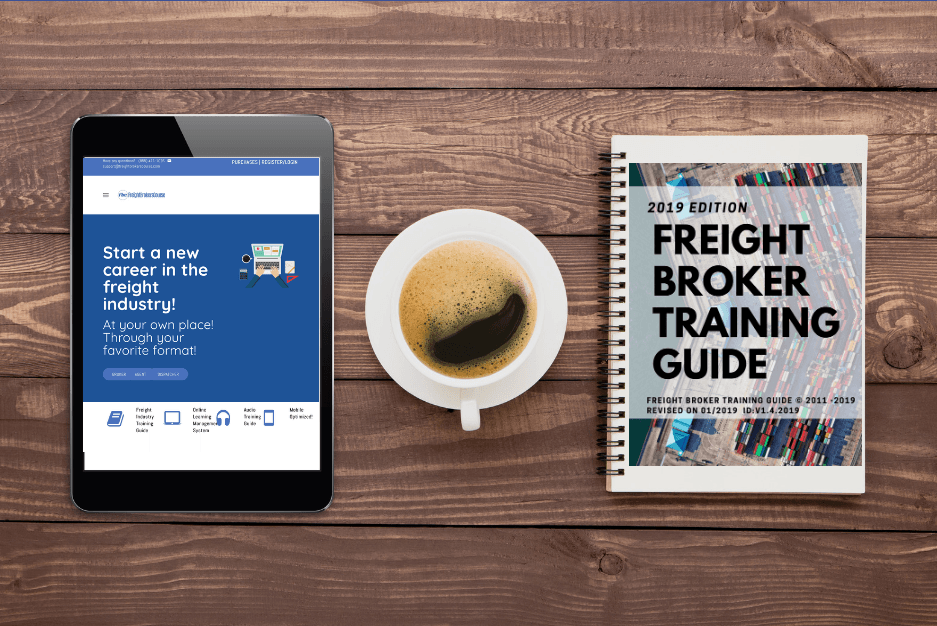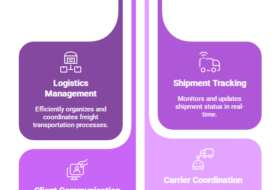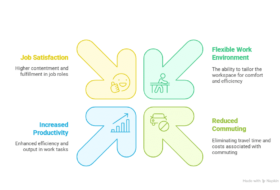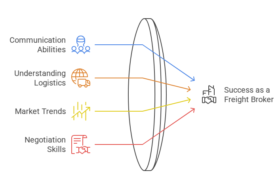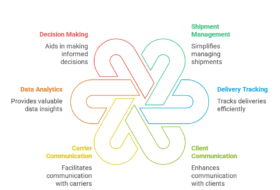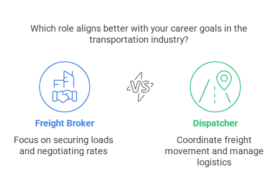1. Start with a low-cost TMS
Sure, that fancy transportation management system the salesperson pitched looks nice, but do you need all its functionality now? Whether you are digital or voice, you will need a backend system for managing loads. If you are going down the traditional route – you should be ready to go out of the box with little more than some small configuration. In fact, you can get started for less than $50 per month, if you are not concerned about advanced functionality. Often, a low-cost cloud-based system, while more limited, is sufficient to build the business. As the money starts to roll in, you can always upgrade to that Cadillac TMS you really want. Cloud TMS providers include EKA, Emerge, Ascend TMS, and Truckstop’s ITS Dispatch.
2. How do you count the money?
An often-overlooked system is the accounting system. Make sure you choose a system that can meet your needs, from payroll to accounts payable and receivables. Like the TMS, the accounting system doesn’t have to be top-of-the-line, but it needs to be more than Bob in accounting jotting down notes in a ledger. Quickbooks offers a cloud-based option that can get you started, and there are other options available as well.
3. How will you sustain the company?
Sure, every transaction will bring in some revenue and if the load is priced for margin (the spread between what you sell the service to the shipper and what you pay the carrier) – you will make money on paper. Unfortunately, this won’t turn into cash overnight. Carriers will want to be paid within 20-30 days and shippers will pay in 40-90 days. The faster you grow, the more capital you will consume. That is unless you set up an accounts receivable financing relationship. While traditional banks offer these lines, they have little experience in freight. We recommend looking for a firm that is familiar with A/R financing in trucking and can fund your working capital.
4. Get an MC number
Brokers who are registering for the first time must apply for broker authority with the FMCSA via the Unified Registration System and get assigned an MC number. This identifies carriers who transport regulated commodities for hire in interstate commerce. The longer you have this number, the less risky you will look to carriers, leading to more of the accepting freight from your site. More on the broker registration process can be found on FMCSA’s website: https://www.fmcsa.dot.gov/registration/broker-registration
5. Get proper insurance
This should go without saying, but having proper insurance is a must. These include property and general liability; vicarious auto liability and umbrella; workers’ compensation; contingent cargo; and errors and omissions.
6. Develop relationships with trusted carriers
Having relationships with carriers you can count on is critical. The worst thing that can happen to any DFM is if loads are posted and never claimed. Consider using an onboarding platform for carriers and utilize tools like Carrier 411 for vetting and monitoring of carriers. Trucker Tools has developed a trusted network for carriers, allowing the broker to rebook carriers in their network. This process keeps the carrier running with the broker, mitigating risks of onboarding.
7. Find your niche
You want to broker freight, that’s great. What kind? Are you going to accept any freight? Creating a niche can be a good way to build trust. If you handle only dry van and refrigerated freight, shippers and carriers specializing in these areas will identify easily with your site. If you choose to accept all types of loads, make sure the various types of loads are segmented properly – either through sections or search. A flatbed hauler who has to wade through 1,000 dry van loads to find a single flatbed load won’t be a user of your service for very long.
8. Provide value-added management services
Simply matching loads to trucks is one thing, but if you want to stand out, develop a strategy for capacity sourcing and become a trusted advisor to carriers and shippers. This can include the total cost of ownership data and understanding that freight transportation management isn’t just about price.
9. Get a rate assessment product
The most important decision in your day to day will be to figure out what to quote shippers for loads. Most brokers pursue a margin plus based quoting strategy. In other words, you will decide what margin you want to strive for on each load. Usually, it is based on a percentage of what is charged (10-20%), although some will use a flat margin per load ($100+).
Rightnowloads.com offers RateMate, a $35 analysis tool that will get you started and going. For more advanced users, Truckstop.com offers RateAnalysis, which will assist you in developing bids and quoting. DAT has an advanced offering as well, called Rateview. Both are robust and offer tools for historical rate analysis.
10. Learn how to freight forecast
If you plan to scale your brokerage business outside of a few shippers, participating in RFPs, or quoting on new lanes, learning how to become a freight forecaster will be critical to your success.
Freight forecasting is the skill of analyzing current and future freight market conditions. Knowing how much capacity is available in the market now and will be available in the future is important for winning rate bids and maximizing margins.
SONAR is the tool that freight forecasters use to track market conditions and create bids on freight. Unlike a rate assessment product (see above), SONAR uses artificial intelligence and algorithms based on The Waterfall Theory of Freight to produce trucking rates and market forecasts for one day out to next year. It also provides a complete analysis of the market in near-real-time.
11. Join an association
To be involved in any industry requires connections. The Transportation Intermediaries Association is a trade association designed for third-party logistics providers and has plenty of networking opportunities. It also provides educational content and best practices among a multitude of benefits.
12. Remember that freight business is about people
Organizations are only as strong as the people that make up the organization. Transportation is a close-knit community and it won’t take long for stories of mistreatment to make the rounds. To avoid this, remember that your employees – and the carriers and shippers you deal with – are people who want to be treated with respect. Recruit strong people, retain good employees and provide incentives for jobs well done. An employee incentive program can also drive appropriate behavior and keep employees engaged.
Source: https://www.freightwaves.com/news/12-tips-for-freight-brokerage-success


